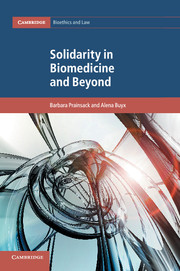Book contents
- Frontmatter
- Contents
- Foreword
- 1 Solidarity: A Brief History of A Concept and A Project
- PART I Theorising Solidarity
- 2 Solidarity: Intellectual Background and Important Themes
- 3 What is Solidarity?
- 4 Solidarity: Normative Approaches
- PART II Solidarity in Practice
- PART III Conclusions
- Afterword
- Bibliography
- Index
- Books in the Series
3 - What is Solidarity?
from PART I - Theorising Solidarity
Published online by Cambridge University Press: 09 February 2017
- Frontmatter
- Contents
- Foreword
- 1 Solidarity: A Brief History of A Concept and A Project
- PART I Theorising Solidarity
- 2 Solidarity: Intellectual Background and Important Themes
- 3 What is Solidarity?
- 4 Solidarity: Normative Approaches
- PART II Solidarity in Practice
- PART III Conclusions
- Afterword
- Bibliography
- Index
- Books in the Series
Summary
Introduction
The previous chapter gave an overview of several developments and themes in Western thinking that have influenced our own understanding of solidarity. This chapter presents our definition of solidarity as enacted commitments to accept costs to assist others with whom a person or persons recognise similarity in a relevant respect. We do this with the dual aim of providing a definition that stresses what is specific about solidarity, thus bringing more clarity to a term which has been accused of being ‘vague’ or ‘opaque’, and distinguishing it from related terms such as friendship, altruism, empathy, etc. Secondly, we aim to develop a definition of solidarity that is suited for application to policy contexts in biomedicine and related areas. Our current focus is on biomedicine for pragmatic reasons; our definition of solidarity, and our suggestions regarding solidarity-based policy and governance frameworks are, however, also applicable to much wider contexts, as sketched in Chapter 8.
The introduction of our own approach starts by outlining one of its most important features – and one where we deviate from most of the existing scholarship on solidarity – namely that we understand solidarity first and foremost as something that is enacted, rather than as a value, feeling or obligation. A look at how practice epistemology has shaped our approach to understanding and utilising solidarity sets the stage for everything that follows later. We then highlight aspects of other scholarly traditions that we have adopted into our own understanding of solidarity, such as theoretical scholarship on the relationality of personhood. After that, we introduce our definition of solidarity in more detail, including the relationship between solidarity and reciprocity, which is a very close but not a linear one. We draw out some implications of the definition before we give an overview of the reception that our approach has received in the literature, and how that has helped us to advance it.
Solidarity as Practice
Practice is often understood as ‘skilful acting’. In this view, knowing and acting are seen as two activities or states where the first is a requirement for the second; we are assumed to apply knowledge that we have previously acquired. Practice, in other words, is seen as applied knowledge. This view includes two tacit assumptions: first, that knowing and acting are distinct, or at least separable categories and second, that knowing is typically prior to acting.
- Type
- Chapter
- Information
- Solidarity in Biomedicine and Beyond , pp. 43 - 72Publisher: Cambridge University PressPrint publication year: 2017
- 2
- Cited by

